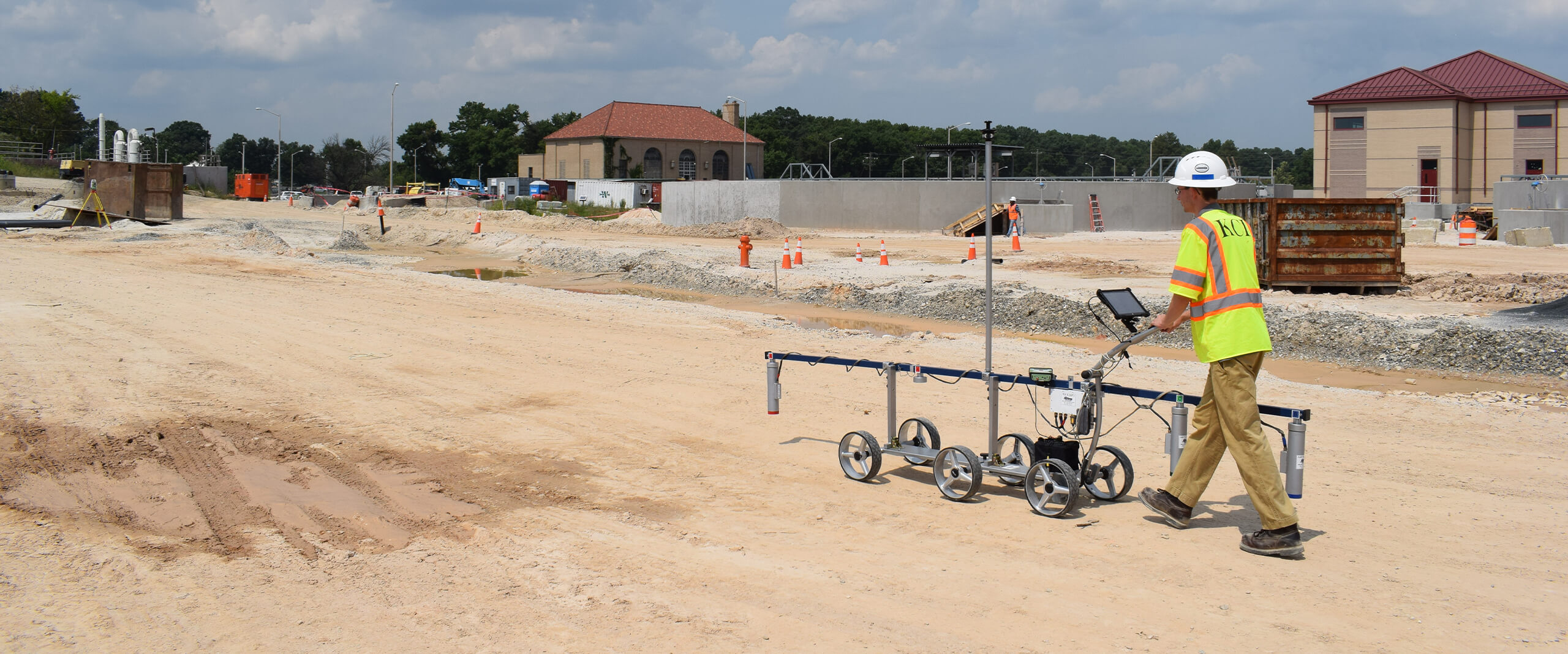Why Employing a Geo Tech Engineer is Critical for Complex Building And Construction Projects
Why Employing a Geo Tech Engineer is Critical for Complex Building And Construction Projects
Blog Article
The Interdisciplinary Approaches in the Geotechnical Market: Connecting the Void Between Design, Geology, and Environmental Science for Optimal Task Outcomes
The assimilation of engineering, geology, and ecological science within the geotechnical market is not simply useful; it is important for accomplishing ideal project end results. This interdisciplinary collaboration promotes a detailed understanding of complex website conditions, enabling for innovative solutions to arise. By taking a look at crucial functions and successful study, we can uncover the vibrant interaction that drives project success. However, challenges continue to be in successfully taking care of these multidisciplinary efforts, questioning regarding future patterns and prospective innovations. What methods might emerge to promote this crucial partnership and improve the effectiveness of geotechnical techniques?
Significance of Interdisciplinary Partnership
The significance of interdisciplinary collaboration in the geotechnical market can not be overstated. Efficient geotechnical projects call for the integration of diverse know-how from various fields, consisting of design, geology, and ecological science. This collaboration makes sure that all elements of a task are taken into consideration, causing extensive remedies that resolve intricate difficulties.
Interdisciplinary cooperation cultivates innovation by making it possible for experts to share understandings and methods that might not appear when functioning in isolation (geotechnical engineers). By leveraging the strengths of several techniques, teams can recognize prospective dangers, maximize style procedures, and boost the sustainability of geotechnical tasks. Such partnership promotes an all natural understanding of site-specific problems, which is essential for accurate analysis and decision-making.
The complexity of geotechnical projects requires a worked with method to analytic. Ultimately, interdisciplinary collaboration is important for progressing ideal methods and achieving excellence in the geotechnical industry.
Secret Functions of Each Discipline
Partnership among different self-controls is not simply useful; it is important for the effective implementation of geotechnical jobs. Each self-control-- engineering, geology, and environmental science-- plays an unique yet interconnected duty that adds to forecast efficiency and sustainability.
Geotechnical designers are largely accountable for creating structures and making sure structural honesty. They assess dirt and rock residential or commercial properties to examine load-bearing abilities, offering necessary data for secure building and construction practices. Their knowledge makes it possible for the formula of innovative options to complex obstacles.

Ecological researchers examine the prospective influences of construction on ecological communities and water sources. They carry out environmental analyses and develop reduction approaches to lessen unfavorable impacts. By integrating environmental considerations, they guarantee conformity with policies and advertise sustainability throughout the job lifecycle.
Case Studies of Effective Integration
Effective integration of geotechnical self-controls can be exhibited via different instance researches that highlight the effectiveness of teamwork in addressing complicated design challenges. One notable example is the building of the Hong Kong-- Zhuhai-- Macau Bridge, where a joint strategy including geotechnical engineering, geology, and environmental scientific research was important. Designers and rock hounds functioned in unison to evaluate the seabed conditions and optimize the foundation style, guaranteeing stability and decreasing environmental effect.
An additional impactful situation is the enhancement of slope stability in the San Francisco Bay Area, where an interdisciplinary group incorporated geotechnical analysis with ecological analyses. By integrating hydrological studies and geological surveys, the group effectively determined potential landslide risks and executed efficient mitigation procedures, improving security read the full info here and sustainability.
Moreover, the redevelopment of Brownfield websites often needs a multidisciplinary technique. In one instance in Chicago, partnership amongst geotechnical engineers, ecological researchers, and city planners resulted in the effective remediation of contaminated soil, permitting the risk-free transformation of the site into a neighborhood park. These study illustrate that interdisciplinary partnership not only addresses technical difficulties but likewise promotes innovative services that benefit both jobs and neighborhoods.
Difficulties in Multidisciplinary Projects

Furthermore, coordinating timetables and process among numerous teams can be problematic, especially when each self-control has unique task landmarks and deliverables. This misalignment can result in hold-ups and increased costs. The obstacle of resource allocation likewise looms big; guaranteeing that specialized proficiency is offered at essential times needs mindful planning and insight.
Finally, governing conformity postures another considerable obstacle. Each technique might face different regulative structures, and straightening these requirements to fulfill job objectives can be complex and time-consuming. Dealing with these obstacles demands solid management and reliable interaction strategies to foster collaboration and make sure that multidisciplinary teams function cohesively in the direction of shared goals.
Future Trends in Geotechnical Practices
As the geotechnical market advances, arising fads are improving practices to attend to the obstacles faced in multidisciplinary jobs - consulting engineer. One substantial fad is the increased integration of advanced modern technologies, such as artificial intelligence and device discovering, right into geotechnical analysis and style. These modern technologies boost anticipating modeling and risk assessment, allowing designers to make more educated choices throughout the task lifecycle

Additionally, the fostering of electronic twins and real-time monitoring systems is becoming a lot more see this page prevalent. These tools help with continuous evaluation of soil conditions and architectural performance, permitting prompt interventions when issues arise.
Conclusion
In conclusion, the integration of engineering, geology, and ecological scientific research is important for attaining optimal results in the geotechnical market. Effective situation researches illustrate the advantages of this approach, while recognizing the challenges faced in multidisciplinary jobs.
The combination of engineering, geology, and environmental scientific research within the geotechnical industry is not simply useful; it is imperative for attaining ideal job outcomes. Reliable geotechnical projects need the integration of varied proficiency from different areas, consisting of design, geology, and ecological scientific research.Browsing the complexities of multidisciplinary projects in the geotechnical industry offers numerous substantial difficulties.As the geotechnical industry develops, arising patterns are reshaping methods this hyperlink to attend to the difficulties encountered in multidisciplinary jobs. Geotechnical engineers are significantly working together with environmental scientists to guarantee that tasks line up with sustainability objectives and abide with regulatory demands.
Report this page